Margaret P. Chapman
Risk-Aware Robotics: Tail Risk Measures in Planning, Control, and Verification
Mar 27, 2024
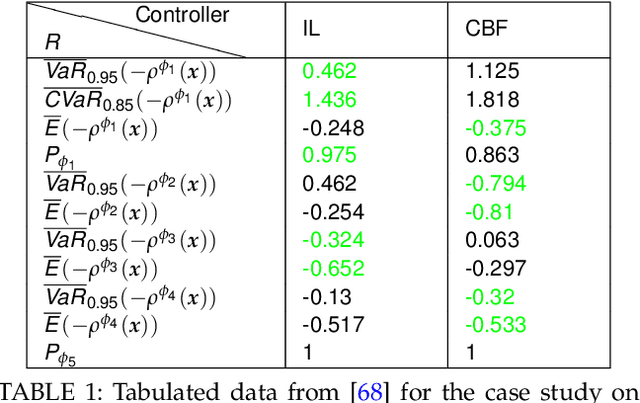
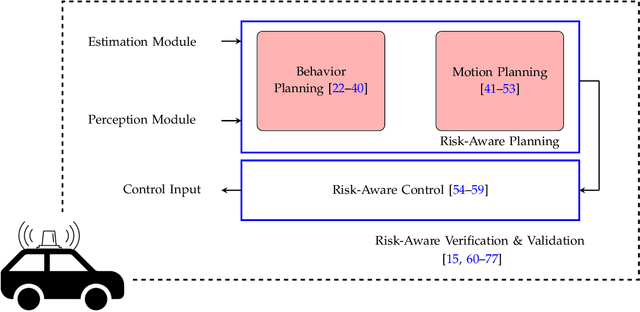
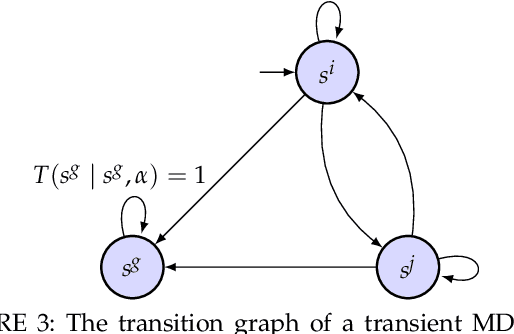
Abstract:The need for a systematic approach to risk assessment has increased in recent years due to the ubiquity of autonomous systems that alter our day-to-day experiences and their need for safety, e.g., for self-driving vehicles, mobile service robots, and bipedal robots. These systems are expected to function safely in unpredictable environments and interact seamlessly with humans, whose behavior is notably challenging to forecast. We present a survey of risk-aware methodologies for autonomous systems. We adopt a contemporary risk-aware approach to mitigate rare and detrimental outcomes by advocating the use of tail risk measures, a concept borrowed from financial literature. This survey will introduce these measures and explain their relevance in the context of robotic systems for planning, control, and verification applications.
Risk-averse autonomous systems: A brief history and recent developments from the perspective of optimal control
Sep 18, 2021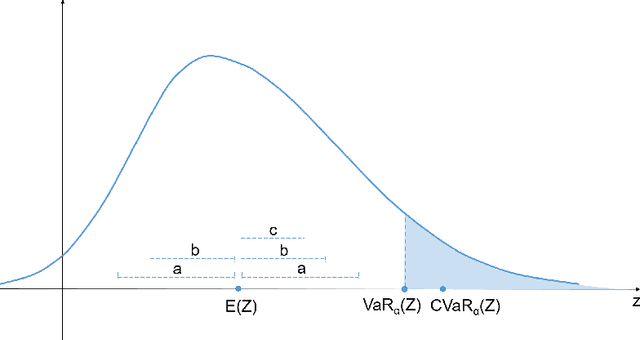
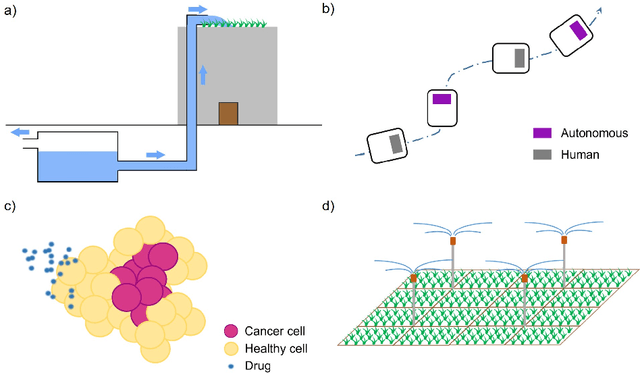
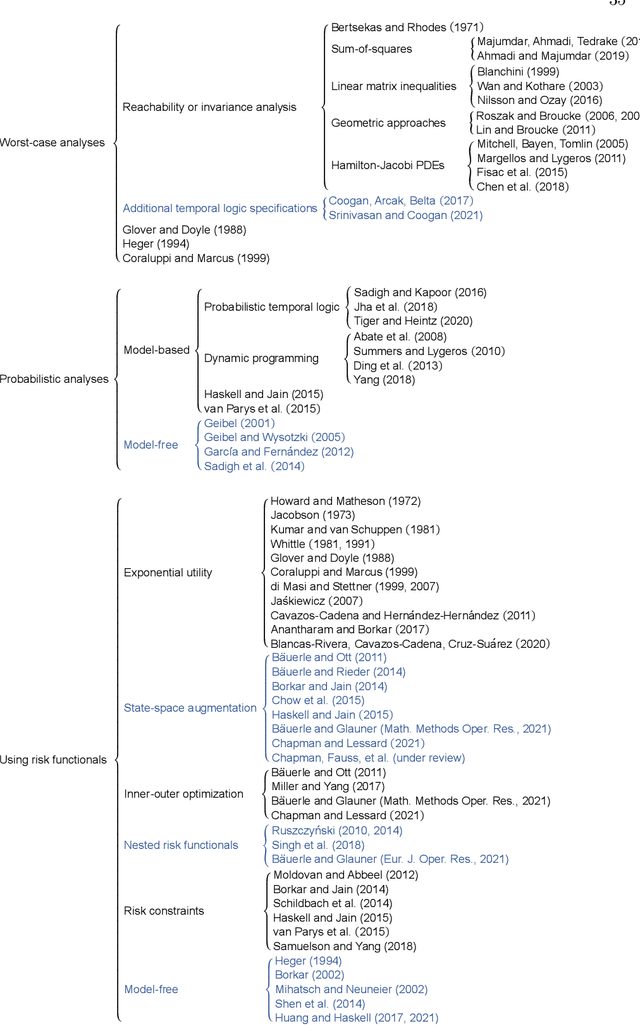
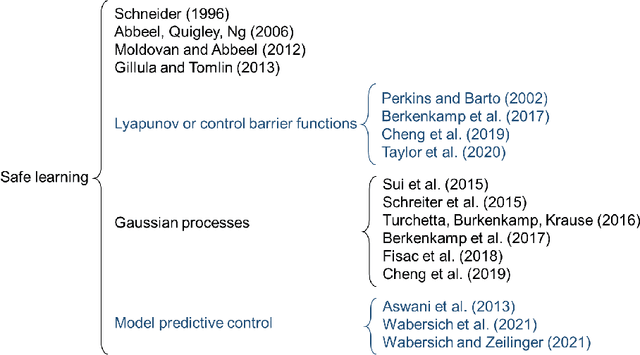
Abstract:We offer a historical overview of methodologies for quantifying the notion of risk and optimizing risk-aware autonomous systems, with emphasis on risk-averse settings in which safety may be critical. We categorize and present state-of-the-art approaches, and we describe connections between such approaches and ideas from the fields of decision theory, operations research, reinforcement learning, and stochastic control. The first part of the review focuses on model-based risk-averse methods. The second part discusses methods that blend model-based and model-free techniques for the purpose of designing policies with improved adaptive capabilities. We conclude by highlighting areas for future research.
 Add to Chrome
Add to Chrome Add to Firefox
Add to Firefox Add to Edge
Add to Edge